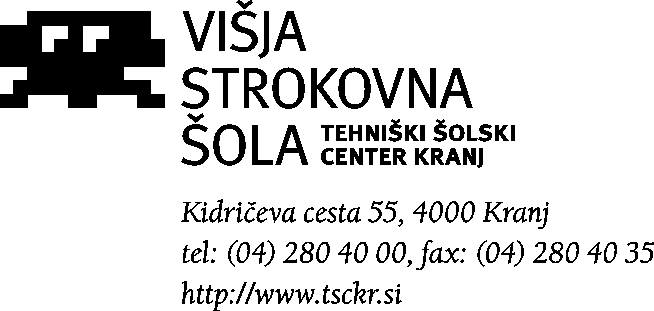WHEN THE TALIBAN ROLLED INTO KABUL IN SEPTEMBER 1996
NEGOTIATING WITH THE TALIBAN RECONCILIATION IN AFGHANISTAN AND PAKISTAN?WHEN THE TALIBAN ROLLED INTO KABUL IN SEPTEMBER 1996
When the Taliban rolled into Kabul in September 1996, sixteen decrees were broadcast on Radio Sharia
When the Taliban rolled into Kabul in September 1996, sixteen decrees were broadcast on Radio Sharia. A new era had begun.
Prohibition against female exposure.
It is prohibited for drivers to pick up women not wearing the burka, on pain of arrest. If such women are observed out on the streets, their homes will be visited and their husbands punished. If the women wear inciting or attractive clothes, and they have no close male relative with them, the driver must not let them into the car. (…)
12. Prohibition against the washing of clothes by river embankments.
Women who break this law will be respectfully picked up in their manner of Islam, taken to their house and their husbands will be severely punished. (…)
15. Prohibition against tailor sewing women’s clothes or taking measurements of women.
If fashion magazines are found in the shop the tailor will be imprisoned. (…)
In addition to the above sixteen decrees, a separate appeal, aimed at Kabul’s women, was broadcast:
Women, you must not leave your homes. If you do, you must not be like those women who wore fashionable clothes and make-up and exposed themselves to every man, before Islam came to the country.
Islam is a religion of deliverance and it had decided that a certain dignity belongs to women. Women must not make it possible to attract the attention of evil people who look lustfully upon them. A woman’s responsibility is to bring up and gather her family together and attend to food and clothes. If women need to leave the house they must cover themselves up according to the law of Sharia. If women dress fashionably, wear ornamented tight, seductive clothes to show off, they will be damned by the Islam Sharia and can never expect to go to heaven. They will be threatened, investigated and severely punished by the religious police, as will the head of the family. The religious police have a duty and responsibility to combat these social problems and will continue their efforts until this evil is uprooted.
Allahu akbar – God is great. (…)
She loses sight of her all the time. The billowing burka merges with every other billowing burka. Sky-blue every where. She glances at the ground. In the mud she can distinguish the dirty shoes from other dirty shoes. She can see the trimming on the white trousers and catch a glimpse of the edge of the purple dress worn over them. She walks round the bazaar, looking down, following the fluttering burka. A heavily pregnant burka comes panting and puffing by. She is desperately trying to keep up with the energetic pace of the two leading burkas.
The lead burka has stopped near the bed-linen counter. She feels the material and tries to gauge the colour through the grille. She bargains through the grille, whilst dark eyes can only just be seen, dimly behind the lattice. The burka haggles, arms waving in the air. The nose pokes through the folds like a beak. At last she makes up her mind, gropes for her bag and reaches out a hand with some blue banknotes. The bed-linen seller measures up white bed-linen with pale blue flowers. The material disappears into the bag under the burka.
The smell of saffron, garlic, dried pepper and fresh pakora penetrates the stiff material and mingles with sweat, breath and the smell of strong soap. The nylon material is so dense that one can smell one´s own breathing. (…)
They walk on, and weave around with their heads in all directions to see better. Burka-women are like horses with blinkers, they can only look in one direction. Where the eye narrows the grille stops and thick material takes its place; impossible to glance sideways. The whole head must turn; another trick by the burka-inventor: a man must know what his wife is looking at. (…)
Not that they haven´t tried. Since the fall of the Taliban several women’s associations have been formed. Some of them were even active during the Taliban reign, for instance organising schooling for girls, teaching women about hygiene and running literacy courses. The great heroine from the Taliban time is Karzai’s health minister, Souhaila Sedique, Afghanistan’s only female general. She kept up the instruction of medicine for women and managed to reopen the women`s section at the hospital where she worked after the Taliban had closed it. She was one of very few women under the Taliban who refused to wear the burka. In her own words: `When the religious police came with their canes and raised their arms to hit me, I raised mine to hit them back. Then they lowered their arms and let me go´. (…)
But for the masses very little has changed. In the families, tradition is all –the men decide. Only a small number of Kabul women renounced the burka during the first spring after the fall of the Taliban, and very few of them know that their ancestors, Afghan women in the last century, were strangers to the burka. The burka had been used for centuries but not by large numbers of the population.
Asne Seierstad: The Bookseller of Kabul. Pages 84-93.
Tags: kabul in, of kabul, kabul, september, taliban, rolled
- 85 KARASAI BATYR STREET • KZ50012 ALMATY PHONE 7272727364
- Teoria de Colas Introducción las colas son un Aspecto
- C12004 ATTACHMENT NAESB STANDARD 2314 MEASUREMENT CORRECTIONS MEASUREMENT
- TEACHING YOUR CHILD DRESSING DRESSING CAN BE A
- ‰8TÈ!HÈY2[PŠ CONTRATOSINTEPRETACIÓNCLÁUSULA DE MEJORAS SUMARIO 1) FRENTE A LA
- LITERATURA ESPAÑOLA E HISPANOAMERICANA 1 BBNRS02401 LITERATURA FANTÁSTICA SEMESTRE
- PACIFIC COOPERATIVE STUDIES UNIT UNIVERSITY OF HAWAI’I AT MANOA
- CHAPTER 10 IMPLICATIONS LIMITATIONS AND FUTURE DIRECTIONS 1 INTRODUCTION
- 8 PATVIRTINTA ŠILUTĖS RAJONO SAVIVALDYBĖS TARYBOS 2021 M
- RPL070801NOURUTKELOMPOK SPESIFIKASI KEBUTUHAN PERANGKAT LUNAK NAMA PERANGKAT LUNAK UNTUK
- COMUNICAZIONE AI SENSI DELLA DELIBERAZIONE N 9806 E SMI
- QUIERO SER PAN ES JOVEN EL QUE ESPERA EL
- 82102 FREEDOM OF INFORMATION REQUEST DEAR THANK YOU FOR
- CINCO POEMAS Y CURRÍCULO DE ROBERTO MANZANO EL JUNTADOR
- SENTRALSTYRET OPPNEVNTE I 2007 EN ARBEIDSGRUPPE SOM SKULLE UTARBEIDE
- CONTRATO DE TRABAJO PARA LA CONSTRUCCIÓN EN LA CIUDAD
- POPOEJ 4 INSCRICIÓN NO ITINERARIO DE SEGURIDADE E MEDIOAMBIENTE
- AFFIDAVIT OF COMPLIANCE WITH SMOKE DETECTOR REQUIREMENT FOR ONE
- NA TEMELJU ČLANKA 27 STAVKA 1 PODSTAVKA 3 ZAKONA
- 8 HALTON BOROUGH COUNCIL CHILDREN & FAMILY SERVICES PEOPLE
- UNIQUE REFERENCE NUMBER APPENDIX 3 PART II OF THE
- WEEK THIRTYONE PROVERBS 29 PROVERBS 292526 THE
- 1993 BAŞKENT ÜNİVERSİTESİ SAĞLIK BİLİMLERİ ENSTİTÜSÜ 20192020 AKADEMİK
- 31303 MAILBOX INSTALLATIONS THE STANDARD SPECIFICATIONS ARE REVISED AS
- 8 BAB I PENDAHULUAN 1 LATAR BELAKANG INDONESIA MERUPAKAN
- EJERCICIOS DE REPASO POTENCIAS Y RAICES 1 SE QUIEREN
- ELECTION OF PUPILS FROM ELLON ACADEMY TO SERVE AS
- CADENAS DE CARACTERES 1 DEFINICÓN ES UNA SECUENCIA DE
- ORDEM DE SERVIÇO Nº 0122007 A PRESIDENTA DA
- A CHILD CALLED IT REFLECTION PAPER IN YOUR LIFETIME
 ÅRSPLAN KLASSE 4A FAG DANSK ÅR 20142015 PERIODE HVORNÅR
ÅRSPLAN KLASSE 4A FAG DANSK ÅR 20142015 PERIODE HVORNÅRNA TEMELJU ČLANKA 32 STATUTA OPĆINE KALNIK („SLUŽBENI GLASNIK
VIERNES 18 DE NOVIEMBRE DE 2011 DIARIO OFICIAL (PRIMERA
FEN İŞLERİ MÜDÜRLÜĞÜ 2004 YILI FAALİYETLERİ YAPIM VE ONARIM
LECCIÓN TERCER MANDAMIENTO PAGINA 3 IGLESIAS CRISTIANAS DE DIOS
 ALL ABOUT OPEN SOURCE AN INTRODUCTION TO OPEN SOURCE
ALL ABOUT OPEN SOURCE AN INTRODUCTION TO OPEN SOURCECHAPTER 5 AROUSAL ATTENTION AND PEAK PERFORMANCE OVERVIEW ONE
 PAY POLICY STATEMENT 20182019 HUMAN RESOURCES TO BE APPROVED
PAY POLICY STATEMENT 20182019 HUMAN RESOURCES TO BE APPROVEDSZCZEPIENIA DZIECI (Z ROCZNIKÓW 20132016) PRZECIWKO PNEUMOKOKOM –
HOMEWORK 92 STOICHIOMETRY A REVIEW YOUR NOTES B
 Notes 2 Loads and Load Duration 20 Introduction Unlike
Notes 2 Loads and Load Duration 20 Introduction Unlike FOSTERING COMMUNITY BUILDING (DRAFT) SYMPOSIUM IMPLEMENTING A PEDAGOGICALLY MEANINGFUL
FOSTERING COMMUNITY BUILDING (DRAFT) SYMPOSIUM IMPLEMENTING A PEDAGOGICALLY MEANINGFUL 4 „KAŻDA INFORMACJA POWIĘKSZA NASZĄ WIEDZĘ” EDUKACJA CZYTELNICZA I
4 „KAŻDA INFORMACJA POWIĘKSZA NASZĄ WIEDZĘ” EDUKACJA CZYTELNICZA ISPECYFIKACJE TECHNICZNE S—0500 IZOLACJE SPECYFIKACJA TECHNICZNA S0500 IZOLACJE CPV
LUGAR Y FECHA DEL PEDIDO HORA FECHA ESTIMADA
LEY 601 DE 2000 (JULIO 25) DIARIO OFICIAL NO
 PROGRAMIRANJE I PISNI IZPIT IME IN PRIIMEK
PROGRAMIRANJE I PISNI IZPIT IME IN PRIIMEK  e Early Years Ducation – Ethnic Minority Achievement Service
e Early Years Ducation – Ethnic Minority Achievement ServiceFORSLAG TIL DETALJPLAN FOR GNRBNR 12025 HØLALØKKA NORD (GJELLEBEKK
Communities From all Over South Gloucestershire Will Once Again